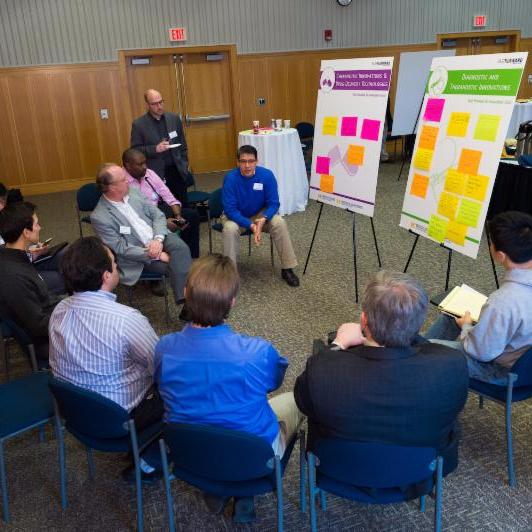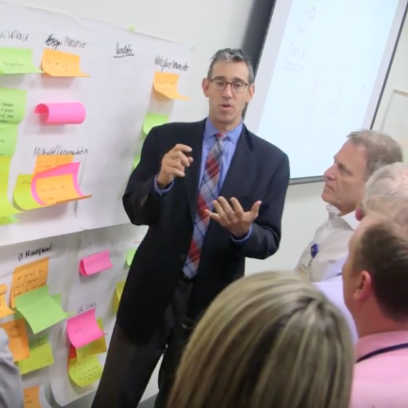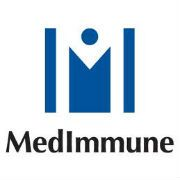|
A UNIT OF THE U-M MEDICAL SCHOOL OFFICE OF RESEARCH
|
New this month

|
 |
 |
EVENT  |
|
DATE  |
WHO SHOULD ATTEND  |
FFMI fastPACE Kickoff
 |
 |
Friday,
March 10, 2017
12:00pm-5:00pm
NCRC G-63/64 |
Registered participants will attend this 4-week course that focuses on early-stage technology. The course blends in-person and online education to help faculty researchers and clinicians prepare a successful business case for funding and development partnerships. This cohort of FFMI fastPACE is full. Information for our fall cohort will be coming later this year.
|
FFMI firstPACE - Regulatory & Reimbursement
 |
 |
Wednesday,
March 15, 2017
5:30pm-6:30pm
Kellogg Eye Center, Oliphant Auditorium
|
Biomedical researchers and entrepreneurs will learn the basics to understanding what the FDA looks for, how the FDA regulates, and what resources are out there to help you better understand the decisions you need to think about prior to market entry. CLICK HERE to register. |
FFMI fastPACE

|

|
Friday,
March 17, 2017
3:00pm-4:30pm
Webinar
|
In the Week 1 session, course participants will discuss value propositions. |
FFMI firstPACE - Reimbursement Considerations for Successful Medical Technology Startups and Licensing Transfers

|

|
Wednesday,
March 22, 2017
12:00pm-1:00pm
Taubman Health Sciences Library, Rm. 6320
LUNCH PROVIDED |
Attendees will hear Susan Rowinski, MSE, President and Founder of Rowinski Group LLC, Reimbursement & Monetization Consultancy for the Medical Technology Industry discuss why reimbursement is important for technology transfer and startup success, why reimbursement planning and execution should begin during the R&D phase of the product development cycle, and common reimbursement planning mistakes and how to avoid them. This event is part of our approved CME series. CLICK HERE to register.
|
FFMI firstPACE - Equity & Investment for Innovations

|

|
Wednesday
March 22, 2017
5:30pm-6:30pm
Kellogg Eye Center, Oliphant Auditorium |
Faculty considering a license or a startup as the path to commercialization will learn about the advantages and disadvantages to each approach. The lecture covers the differences between the two paths and specific considerations for both, including funding and ownership of a startup in the form of equity. CLICK HERE to register. |
FFMI fastPACE

|

|
Friday,
March 24, 2017
3:00pm-4:30pm
Webinar |
In the Week 2 session, course participants will discuss competitive analysis and intellectual property strategy. |
FFMI fullPACE Showcase

|

|
Wednesday,
March 29, 2017
5:30pm-7:30pm
Kellogg Eye Center, Oliphant Auditorium |
FFMI fullPACE participants will present their projects to a panel that will provide feedback. For more information, contact Margarita Sifuentes at [email protected]. |
FFMI fastPACE

|

|
Friday,
March 31, 2017
3:00pm-4:30pm
Webinar |
In the Week 3 session, course participants will discuss the FDA and additional regulatory concerns. |
FFMI fastPACE
 |
 |
Friday,
April 7, 2017
12:00pm-5:00pm |
In the Final Session, course participants will discuss market assessment and monetization strategy. The teams will also present their pitches to the class and judges. |
2017 Biomedical Innovation Cup
 |

|
Wednesday,
May 17, 2017
2:00pm-4:30pm
Marriott Eagle Crest,
Auditorium 2
1275 South Huron Street
Ypsilanti
|
Biomedical researchers and potential investors can attend this annual event, hosted by Paul Riser from TechTown Detroit, that helps prepare a select group of MTRAC for Life Sciences Innovation Hub teams for launch to market, taking the stage to pitch their innovations to the "sharks" of the investment world at the Michigan Growth Capital Symposium. CLICK HERE to RSVP. |
|

U-M Fast Forward GI Innovation Fund Launches - RFPs Due April 10
Three-year program targets discovery and development of future tech to help GI patients
 FFMI kicked off its
U-M Fast Forward GI Innovation Fund at an event on Monday, February 27. Hosted by Tom Shehab from
Arboretum Ventures, the interactive format allowed participants to mingle and share ideas, while also learning about this exciting funding opportunity.
The fund supports early-stage research and commercialization activities such as those related to technology validation and establishing proof-of-concept, including pilot funding support for preliminary studies or development activities that will lead to broader GI product applications. Importantly, the fund seeks to engage interdisciplinary teams of researchers that leverage ideas and technologies across medicine, engineering, public health, and other key units engaged in biomedical research.
There are two tiers of funding available. Tier I Awards will be in the range of $25-$50K and fund projects that address a discrete milestone that is critical to the advancement of research to the point of product development. Tier II Awards will be $75-$100K and fund projects with specific milestones for proof-of-concept and later-stage translational studies (ranges are estimates and actual funding levels will be project-specific).
For more information, contact Visha Krishnan, FFMI Senior Business Analyst, at [email protected] or 734-764-2891.
|

Kellogg Eye Center Think Tank Wraps Up
Department-specific program leads to new idea development
 FFMI recently concluded the KEC Think Tank program, a collaborative innovation program between FFMI and the Kellogg Eye Center. Over a 7-month period, about 90 faculty participated across 19 innovation teams in the areas of clinical care, education, research, and administrative processes.
"The Think Tank has allowed us to evaluate how we take care of patients, how we accomplish our mission, and come up with ways to improve that," said Yannis M. Paulus, M.D.
The six-phase program was structured for faculty to work in small teams to identify, innovate, and implement meaningful change at the Kellogg Eye Center. Projects included increasing operating room utilization, overcoming subject recruitment challenges, increasing residents' sub-specialty surgical volume, streamlining clinical genetics, and more.
To learn more about the KEC Think Tank or developing a similar program for your department, contact Jon Servoss at
[email protected] or 734-764-2692.
|

FFMI "Office Hours" Is Making the Rounds
Consultations help faculty focus research
 As part of the ongoing efforts to nurture a culture of innovation for U-M Medical School faculty at all levels of engagement, FFMI team members are holding "Office Hours."
Featuring 10-15 minute block scheduling and a convenient location within the select department, Office Hour appointments are considerably shorter than one of our
Idea Consultation meetings and offer an extremely focused discussion with an FFMI commercialization expert. Faculty will come away from an appointment with a commercial assessment of their research and a suggested path of suitable resources here at the U-M, and beyond.
If you would like to schedule FFMI Office Hours for your department, please contact Michelle Larkin at
[email protected].
Upcoming Office Hours:
Department of Immunology & Microbiology
Monday, March 13
1:00pm-4:00pm
Questions? Contact Nick DeHaan at [email protected].
Department of Cellular & Developmental Biology
Wednesday, April 5
1:00pm-4:00pm
Questions? Contact Michelle Larkin at [email protected]. |
|

Latest News From Project Teams Who Received FFMI Funding, Training, and Support
 Judy Leopold, Ph,D.
Judy Leopold, Ph,D., and
Christopher Whitehead, Ph.D., have formed Mekanistic Therapeutics, a startup company focused on the development of cancer therapeutics. In 2015, they received MTRAC funding for a dual inhibitor strategy that targets colorectal cancer. They also received funding from the U-M Cancer Center, and recently received a STTR grant and will move into the U-M Tech Transfer Venture Accelerator.
|

May 17 FFMI Biomedical Innovation Cup
Shark Tank-style competition highlights MTRAC for Life Sciences Innovation Hub-funded research
 Join Fast Forward Medical Innovation as a select group of
Mi-TRAC teams pitch their innovations to the "sharks" of the investment world, at the
Michigan Growth Capital Symposium.
Wednesday, May 17
2:00pm-4:30pm
Marriott Eagle Crest
Auditorium 2
1275 South Huron Street
Ypsilanti
The path to market for a new biological product is challenging. It's not enough to have a deep knowledge of the science. Innovators must be ready to step into the spotlight, showing stakeholders and potential investors clarity of vision and passion.
This year's pitches...
ECM Technologies
Electrocardiomatrix (ECM): A New Method for Detection of Cardiac Arrhythmias
EVOQ Therapeutics
A Novel Nano-Vaccine Technology for Cancer Immunotherapy
FibrosIX LLC
Development of a Highly Potent Inhibitor of the Rho/MRTF/SRF Pathway as A Novel Oral Therapeutic for Scleroderma
Medigenix Bio
Preclinical Data Package for a Small Molecule Inhibitor of PAI-1
CellScope Retina: The easy, wide-field retinal imaging system
Providing early detection of a leading cause of blindness
Tyson Kim, M.D., Ph.D., University of Michigan
|

FFMI Helps Facilitate Partnership Between Michigan Medicine and MedImmune
Three-year research alliance to focus on diabetes, obesity, and related metabolic disorders
 Michigan Medicine and
MedImmune, the global biologics research and development arm of
AstraZeneca (NYSE: AZN), have entered into a research alliance to identify potential new therapies for the prevention and treatment of diabetes, obesity, and related metabolic disorders.
The organizations are combining their research expertise to explore how the central nervous system and peripheral tissues rely on each other in these three major disease areas. In addition, researchers will develop and utilize cutting-edge technologies to study genetic models in order to understand and identify targets for the treatment of diabetes and related diseases.
|

Smartphone Device Offers New Retinopathy Screening Tool
Low-cost diagnostic provides early detection of common cause of blindness
 Diabetic eye disease, called diabetic retinopathy (DR), is the leading cause of preventable blindness among the 29.1 million Americans with diabetes aged 20-74 years old, affecting 40-45 percent overall. DR results when damaged and abnormal blood vessels leak in the light-sensitive tissue at the back of the eye. It can be safely and effectively monitored by photography; however, traditional retinal cameras are expensive, bulky, and require specially trained operators. Diabetic eye disease, called diabetic retinopathy (DR), is the leading cause of preventable blindness among the 29.1 million Americans with diabetes aged 20-74 years old, affecting 40-45 percent overall. DR results when damaged and abnormal blood vessels leak in the light-sensitive tissue at the back of the eye. It can be safely and effectively monitored by photography; however, traditional retinal cameras are expensive, bulky, and require specially trained operators.
In the past decade, photography-based retinal evaluations have shown to be effective in managing DR, glaucoma, macular degeneration, and more. But current management strategies are limited by high costs and the oversized nature of traditional tabletop retina cameras. Despite widely accepted guidelines, nearly half of adults in the United States do not receive recommended examinations for DR.
University of Michigan Kellogg Eye Center team Tyson Kim, M.D., Ph.D.; Maria Woodward, M.D., M.S.; and Yannis Paulus, M.D., are refining and clinically validating the CellScope Retina, a compact, handheld device that produces wide-angle retinal images and provides similar imaging capabilities of tabletop retinal cameras, but is portable and less expensive. Their work is part of a multi-institutional collaboration that includes University of California Berkeley (Dan Fletcher, Ph.D.) and Washington University in St. Louis (Todd Margolis, M.D., Ph.D.).
"Increasing the accessibility of retinal photography for screening will have an enormous impact on saving vision from preventable causes of blindness across the world," noted Dr. Kim. "Diabetes is an ideal disease to address first since there is an incredible need, as well as already established, photography-based evaluation guidelines."
DR accounts for 12 percent of all new cases of blindness in the United States every year. This project aims to prevent vision loss in treatable diseases like DR by providing high-quality imaging and increased accessibility.
"I appreciate the importance of innovation, and with the help of MTRAC, I hope I will directly improve patient care by providing a high-quality, low-cost technology that is very accessible to patients," Kim said.
|

After welcoming remarks from Robert Neumar, M.D., Ph.D., and Marschall Runge, M.D., Ph.D., Foundation president Brenda Massey and other individuals impacted by traumatic brain injury (TBI) shared their emotional stories. Keynote speaker, Geoffrey Ling, M.D., Ph.D., presented the current challenges to TBI diagnostics and treatment, and Tammy Crowder, Ph.D., Neurotrauma Research Portfolio Manager, spoke for the Department of Defense (DoD), whose
service members and families represent the largest U.S. population suffering from the impact of TBI.
The Massy TBI Grand Challenge will fund integrated science teams that can develop and deliver innovative solutions to improve patient outcomes after severe traumatic brain injury.
Up to $600,000 is available to fund the development of diagnostic, device, therapeutic, or health IT solutions that address the initial "golden hours" of care after severe TBI (generally the first 48 hours). Treatment administered during this critical timeframe can determine patient survival and have a significant effect on long-term function and disability.
|
 |
|
|
|
|